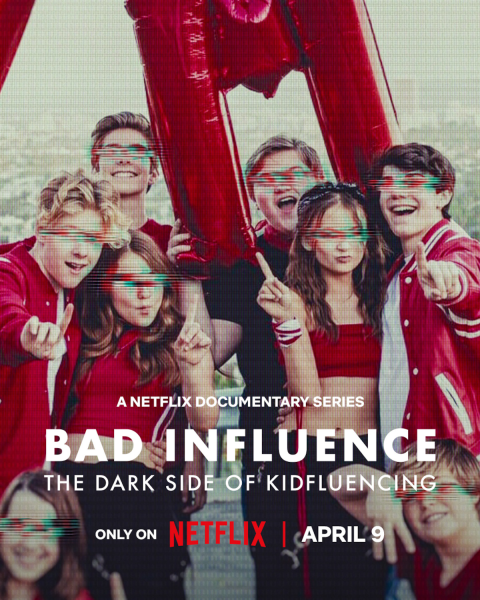This Is How Paramore Came Back Swinging
After a six year break, Paramore finally came back with their long-awaited sixth studio album: This Is Why. Which is ironic… or possibly planned now that I think about it. Hayley Williams released two personal albums post After Laughter, but has finally returned to the Paramore setting to show off how much she and her band have grown.
The self-titled album—Paramore—was intended to paint a picture of who the band really was and how far they’ve come from their humble origins of Tennessee. This Is Why however, seems to take its place. Paramore is where the band was… This Is Why is where they are now. Ten years after their self-titled album, Paramore has grown tremendously.
This Is Why is the first studio album to share its title with a track on the record. The appearance of a title track is no small decision; especially debuting so recently in Paramore’s vast discography.
From new experiences to different sounds, Williams has no fear of failure or success with what she puts out under the Paramore name. And the appearance of a title track for the first time, with regards the semi-title track “All We Know” on the record All We Know Is Falling, highlights this major growth. From album one to Paramore smack dab in the middle of the band’s discography all the way to their latest release, Paramore is not defined by one sound, genre, or story. Instead, they continue to redefine themselves with each new track.
Album number six is nothing to breeze over. This Is Why truly is a deep, lyrically poetic, sonically pleasing, heart-wrenching album. The decision to release three of the somewhat shallower tracks on the record speaks for how prominent the album is as a whole. Instead of focusing on heartbreak and sorrow, the record delves head first into concepts of selfishness, self-loathing, fear, hate, pleading, and everything unpleasant.
This is no pity album. It tells the story of all the so-called “ugly” emotions and yearnings. It’s relatable in a way that the listener almost doesn’t want to be able to relate to. It’s no solemn, beautifully depressing piece of work: but it is art, nonetheless. It’s the bold concept of an album that many artists shy away from. Paramore is bold. Hayley Williams is bold.
Taking a break to focus on her own growth, Williams released two solo albums: Petals for Armor and Flowers for Vases/Descansos. After Laughter—Paramore’s fifth studio album—serves as the first part of a much larger story Williams was telling about her heartbreak following and leading up to her divorce. This album has coined phrases like “the happiest album about depression” for its upbeat tempos, beats that make you want to dance, and poppy feel. The lyrics however, tell a different story. After Laughter delves into the deep feelings and hurt that come with heartbreak and how painful it really is—but disguises its sadness with said “happy” feeling.
With After Laughter in mind, Petals for Armor served as William’s first opportunity to let loose and separate from what faithful listeners in a way expect from Paramore. She was able to delve even deeper than After Laughter and not disguise her gritty emotions and pain with upbeat tonations. The opening track alone drops William’s first true profanity in a song. And including the “f-bomb” in the first solo song listeners will be hearing, sets a new level of expectations and reality.
Unseemingly lucky for Hayley Williams and all her listeners, the pandemic hit, putting the Petals for Armor tour on a non-resuming hold. The forced quarantine that came with the wave of COVID hitting the U.S. forced Williams to deal with her emotions, even when she thought she had been through with them.
And so came the emergence of the heartbreakingly-beautiful-acoustics of Flowers for Vases/Descansos. Here, Williams dove even further into her pain, writing about the true ugly emotions of heartbreak. From the yearning of getting your partner back, to the rage and hate that comes with that heartbreak, down to the solemn acceptance of your relationship coming to an end, and the love that remains in the most painful of ways; Descansos reached a new level of vulnerability that Petals for Armor just scratched the surface of.
Which brings us to This Is Why. Seemingly disconnected from the perfect trilogy that is a full listen-through of After Laughter, Petals for Armor, and Descansos, This Is Why is evidence enough of the never-ending story Williams is telling. Rather than focusing on sadness, heartbreak, and true depression, Paramore’s latest album focuses on everything you don’t want to acknowledge about those painful emotions and experiences.
With the acceptance of the inability to live in the moment in “Crave” all the way to the tear-jerking reality of yearning for while simultaneously not wanting to give into love in “Liar,” This Is Why does not hold back. Emotions change as time goes on, and so does pain. And Hayley Williams’ two solo works paired with After Laughter and This Is Why tell the story of that ever-changing pain. Instead of getting easier, pain and heartbreak manifest in different ways and are a journey, rather than a cycle. These albums are that journey.
This Is Why by Paramore. The ugliest of emotions all put on display.

Emily Betwinek is currently a senior at Bethpage High School. She is one of the two head editors of The Eagle’s Cry. She is also a member and Drum Major...











